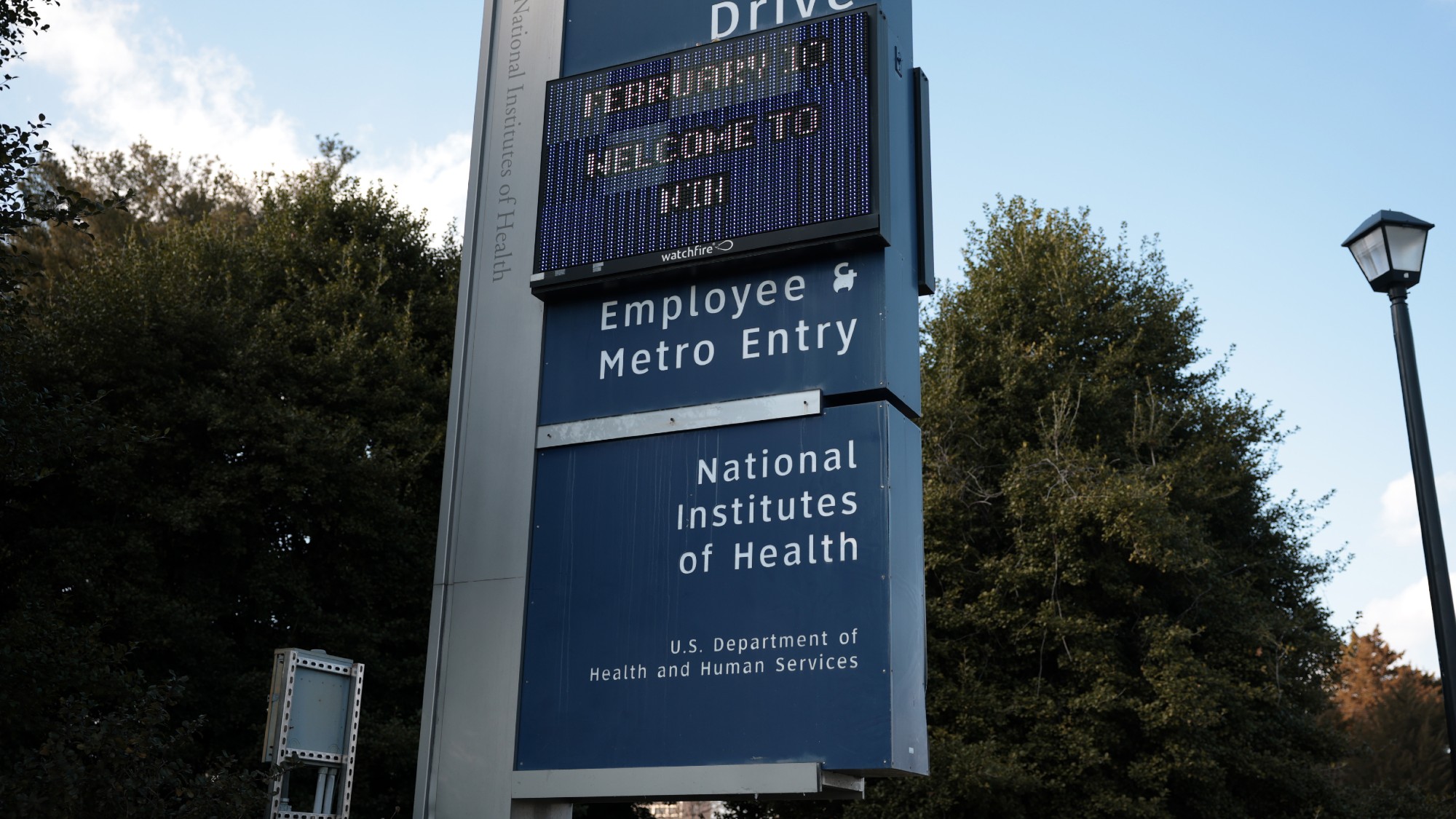What does the NIH do?
The federal agency 'towers over' medical research. But it is facing cuts.


A free daily email with the biggest news stories of the day – and the best features from TheWeek.com
You are now subscribed
Your newsletter sign-up was successful
Like many government institutions, the National Institutes of Health (NIH) faces big budget cuts and a dramatic restructuring under President Donald Trump. The agency has had a hand in many of the major medical innovations and discoveries of recent decades.
NIH "towers over the world's medical research," said The New York Times. Medications to treat everything from AIDS to Covid-19 to obesity all have their foundations in the discoveries done by government researchers. NIH also pays for clinical trials of new treatments for "cancer, heart disease and diabetes" that have "saved lives." If you take a prescription drug regularly, "there is a 99% chance NIH was involved in the pathway to its discovery," said Dr. Francis Collins, a former director. That work now appears to be vulnerable.
What does the NIH do?
The National Institutes of Health is the "primary federal agency charged with conducting and supporting medical, health and behavioral research," the Congressional Research Service said in a 2024 overview. Prior to the Trump administration taking office, the NIH umbrella covered 27 different institutes and centers, employing 6,000 scientists and researchers focused on cancer, child health, diabetes, environmental health and more. That is only the start: 83% of the NIH budget went to "extramural grants" that supported the work of more than "300,000 individuals who work at over 2,800 hospitals, medical schools, universities and other research institutions around the country."
The Week
Escape your echo chamber. Get the facts behind the news, plus analysis from multiple perspectives.

Sign up for The Week's Free Newsletters
From our morning news briefing to a weekly Good News Newsletter, get the best of The Week delivered directly to your inbox.
From our morning news briefing to a weekly Good News Newsletter, get the best of The Week delivered directly to your inbox.
What are the agency's accomplishments?
NIH has "nurtured nearly every U.S. Nobel laureate in medicine," Dr. Jeffrey S. Flier and Pierre Azoulay said in The Boston Globe. The agency has also "enabled critical breakthroughs" in cardiovascular care and "built the biomedical workforce" that has driven American medical innovation. Its research was the foundation for the lightning-fast development of vaccines during the Covid-19 pandemic, helped discover that fluoride can reduce tooth decay, provided an array of new insights about women's health and was behind treatments for diabetes, sickle cell and cystic fibrosis, among other conditions. An estimated "99% of medications approved in the 2010s were supported by NIH-funded research," Eric "VJ" Rubenstein said in The Indianapolis Star.
What are the criticisms?
The agency "wastes money on pointless and counterproductive projects and DEI initiatives," John Early and Terence Kealey said at National Review. Between 1900 and 1960, American life expectancy rose "on average, by 0.37 years per year," but the rate of improvement dropped off at about the same moment the NIH budget started skyrocketing. NIH has used a "pipeline model" where scientists are allowed to focus on "basic" questions, but Early and Kealey said that is not as effective as a "mission" model where the end result — "end polio," for instance — drives the research. "When research does not yield timely useful results," the duo said, "leadership will require changes."
Conservatives also say that "despite its popular image as a benign science agency," NIH has engaged in research that uses fetal tissue and helped fund "gain of function" research they believe was responsible for the Covid-19 pandemic, Roger Severino said in Project 2025, the Heritage Foundation manual serving as a guide for much of the Trump administration's actions. Project 2025 also criticized NIH for "pushing" research into transgender health issues.
What next?
NIH has been affected by DOGE-driven cuts, including cuts to a long-term women's health research project. Beyond that, the Trump administration has proposed a "massive" NIH budget cut, said Science. The cut would slice funding nearly in half, from $47 billion to $26.7 billion. Several of the institutes under the NIH umbrella would be abolished, while others would be combined. The proposal worries experts. "This is going to completely kneecap biomedical research in this country," said Jennifer Zeitzer, the deputy executive director at the Federation of American Societies for Experimental Biology.
A free daily email with the biggest news stories of the day – and the best features from TheWeek.com
Joel Mathis is a writer with 30 years of newspaper and online journalism experience. His work also regularly appears in National Geographic and The Kansas City Star. His awards include best online commentary at the Online News Association and (twice) at the City and Regional Magazine Association.
